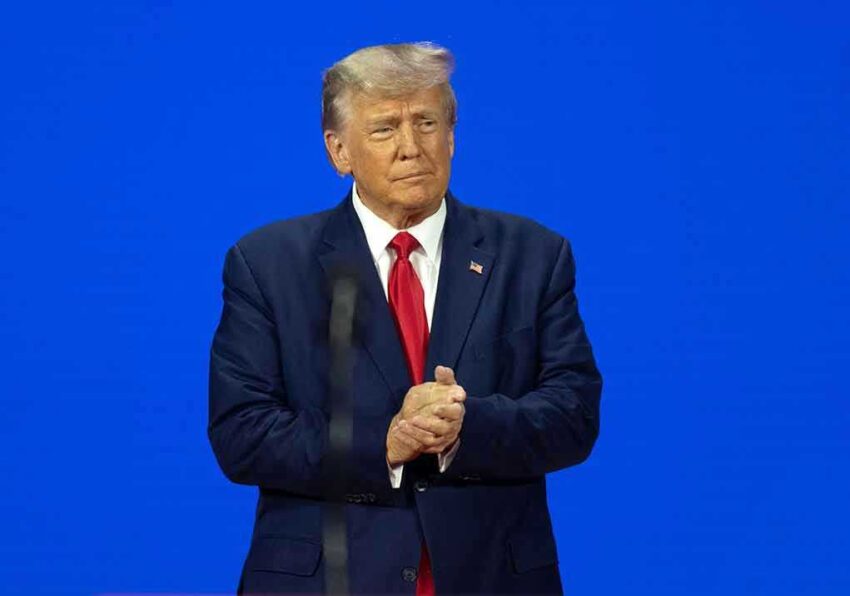President Trump’s rejection of US ground troops in Ukraine—and his push for European-led security guarantees with possible US air support—signals a dramatic shift away from costly American intervention, raising serious questions about future commitments and the risks of vague diplomatic promises.
Story Snapshot
- Trump publicly rules out US ground troops in Ukraine, offering potential air support instead
- Top US and European military leaders meet to discuss new security guarantees for Ukraine
- Russia’s tentative openness to Western guarantees introduces uncertainty for Ukraine’s future
- This shift emphasizes European responsibility and reduces US direct involvement abroad
US Policy Shift: No Ground Troops, Air Support Possible
President Trump, following his recent summit with Vladimir Putin, has made it clear that the United States will not send ground troops to Ukraine. Instead, he has floated the option of providing air support if European allies take the lead on the ground. This marks a fundamental change in US foreign policy, ending years of expensive and open-ended military commitments that many Americans, especially conservatives, have long opposed. Trump’s approach reflects a growing sentiment that the US should avoid entangling ground wars and prioritize America’s interests first.
While Trump’s position draws sharp contrast to the previous administration’s willingness to write blank checks for foreign conflicts, it also places the burden of European security back on European nations. At a high-level meeting in Washington, Gen. Dan Caine, Chairman of the Joint Chiefs, hosted military leaders from Germany, the UK, France, Finland, and Italy to explore concrete options for Ukraine’s security. The discussions followed Trump’s call for France, Germany, and the UK to consider “boots on the ground” for peacekeeping, with the US providing logistical and possibly air support. For many US taxpayers, this signals a welcome end to the era of endless foreign deployments and unchecked spending.
European Allies and Russia: New Dynamics and Risks
European military chiefs, now under pressure to step up, have shown increased willingness to consider ground deployments in Ukraine. This represents a significant change, as Europe has often relied on US leadership and resources in previous crises. Meanwhile, Russian President Vladimir Putin has agreed to meet with Ukrainian President Volodymyr Zelenskyy and has expressed tentative openness to Western security guarantees for Ukraine. However, the details remain vague, and there is justified skepticism over Russia’s true intentions. The risk persists that any deal lacking enforceable terms could threaten Ukrainian sovereignty and embolden adversaries, leaving the West once again to pick up the pieces if the agreement fails.
Ukraine, desperate for credible protection, remains dependent on Western resolve. Without firm commitments, Ukrainian officials caution that any peace framework could quickly unravel. The failed Minsk agreements from the past serve as a stark warning about the dangers of weak or unenforceable promises. For the US, ensuring that new arrangements do not erode national security or encourage further aggression will be vital. The Biden administration’s legacy of unchecked aid and globalist entanglements stands in contrast to this new, more restrained posture.
Impact on American Interests and Conservative Values
This policy shift aligns with the priorities of many American conservatives: limiting government overreach, cutting reckless foreign spending, and reinforcing the importance of national sovereignty. By demanding that Europe take the lead and by refusing to sacrifice more American lives in distant wars, the administration reasserts the principle of putting America first. There is also potential for reduced military spending, allowing resources to be redirected to pressing domestic concerns—ranging from border security to economic stability—rather than endless foreign interventions.
Still, the situation bears close scrutiny. If European allies falter or if Russia manipulates diplomatic ambiguity to its advantage, the US could be pressured to re-engage in ways that undermine conservative goals. Ongoing talks, including a virtual NATO meeting, will be crucial in clarifying the scope and enforceability of any future peacekeeping mission. For now, Trump’s approach marks a clear departure from past “blank check” foreign policy, but vigilance is needed to ensure American values and interests are not compromised by vague international guarantees.
Sources:
Top officers hold Ukraine talks after Trump rules out US troops (Le Monde)
Click this link for the original source of this article.
Author: Editor
This content is courtesy of, and owned and copyrighted by, https://www.rightwing.org and its author. This content is made available by use of the public RSS feed offered by the host site and is used for educational purposes only. If you are the author or represent the host site and would like this content removed now and in the future, please contact USSANews.com using the email address in the Contact page found in the website menu.





